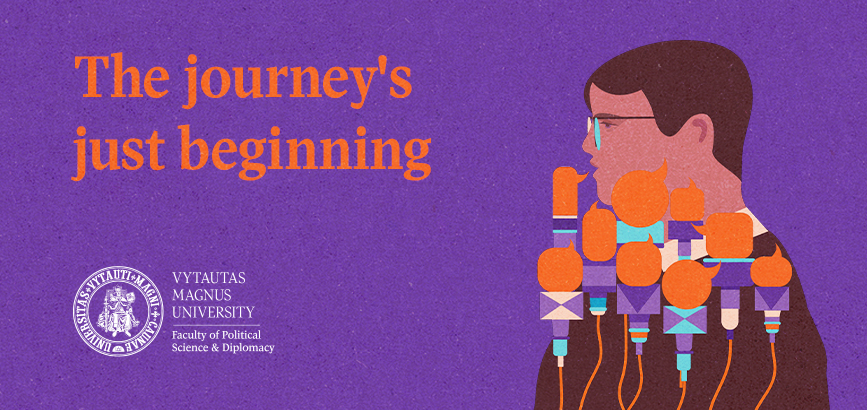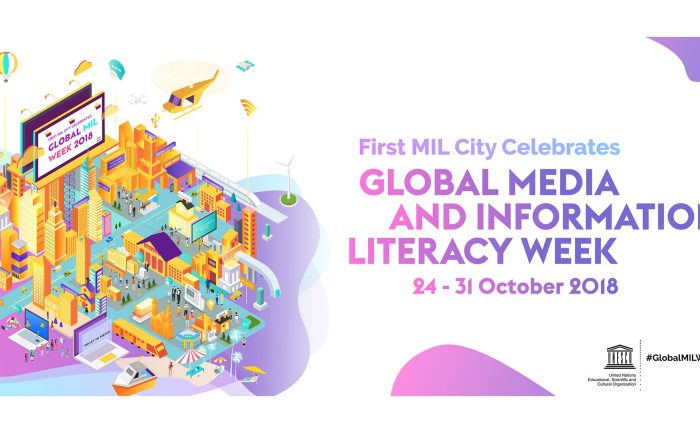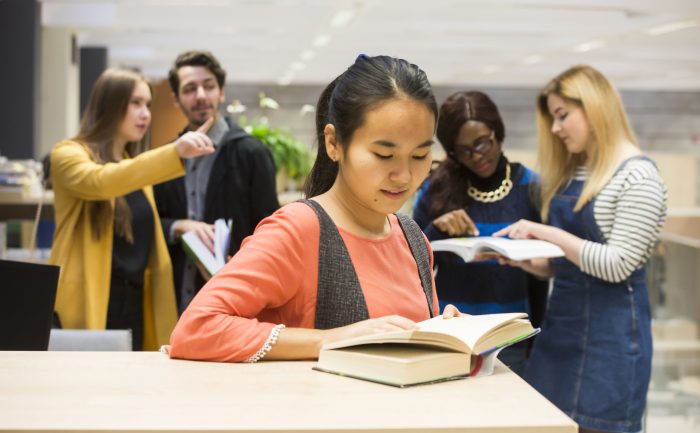Thanks to the Graduate Scholarship – Internship in Tallinn
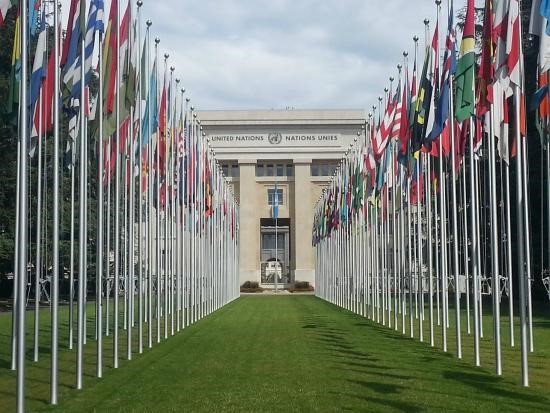
This summer proved to be exceptionally busy for a third-year Bachelor’s degree student of “Political Sciences” Manvydas Džiaugys. The student is doing an internship in the Lithuanian embassy in Tallinn. Estonia is the president of the Council of the EU from 1st of July 2017 till 31st of December. Due to this, Tallinn, next to Brussels, is the place where European Union politics are currently being formed and possible scenarios for the future of the community are being discussed at a highest political level. Manvydas is extremely happy, since the internship at the diplomatic embassy provides with a wide range of useful experiences, and requires to partake in different activities, such as: observing the informational field, public event organizing, administrating the embassy’s social media, observing counseling activities, and working with the Lithuanian community.
The interesting thing is, that Vytautas Magnus University, political science graduates helped to organize this internship. This is the third time that they support students by providing them with a Graduate Scholarship. They sponsor Political science and Diplomacy faculty, Bachelor’s or Master’s degree students, who go to do an internship in a country that is currently the president of the Council of the EU.
Head of the department of Political science, Andrejus Pukšto, emphasizes: “I’m glad that we are able to provide our students with not only state, but also private patron established scholarships for internships. The Graduate Scholarship speaks volumes, and shows the close bond that the university has with its alumni.”
Right away, at the beginning of September, the contest for Stasys Lozoraitis scholarship will be announced. This scholarship is meant for “Diplomacy and International Relations” second-cycle students, to do an internship in Rome.
Double Interview with D. Sirgedas

This time the interview is different. While interviewing Kaunas city council member Domas Sirgedas, FPSD student Gabrielė Laurušonytė, received double answers.
What inspired your decision to study at Vytautas Magnus university and why “Political Sciences”?
Ever since I was a child I was interested in the country’s politics, and I wanted to know more about it, not just from media, and all the people that are involved in it, but from a scientific perspective.
What is your current profession and how did the subject of “Political Sciences” help you to get a job in this field?
Currently I am a member of the Kaunas City council. The knowledge that I gained while studying helped me to choose the best political campaign strategy and get elected.
What VMU advantages (from a student’s perspective) would you distinguish?
The possibility to personally choose your subjects and edit your schedule. Since VMU is not the only university where I studied, while comparing, I can say that a big advantage is the lecturers’ attitude towards the students, very “down to earth”.
Any advice to students who are currently studying or are planning to study a subject in the field of politics?
Enjoy the process.
Not as serious, but equally accurate.
What inspired your decision to study at Vytautas Magnus university and why “Political Sciences”?
I dismissed the study programs that I certainly wouldn’t want or could not study. There was not much left to choose from, since the city of Kaunas was also a priority it made the decision easier.
What is your current profession and how did the subject of “Political Sciences” help you get a job in this field?
Because lecture attendance was not mandatory in order to succeed in your studies, I successfully managed my time and started working at JSC “Autokausta”. I graduated from VMU, but I still work at the company.
What VMU advantages (from a student’s perspective) would you distinguish?
The possibility to “make connections”. The university gives you a chance to interact with all kinds of different people during lectures, who you randomly meet at different spheres after graduating. Connections that you make during your studies can help you later on in life.
Any advice to students who are currently studying or are planning to study a subject in the field of Politics?
Some wise people say that while studying they had the best years of their lives, don’t forget to justify that.
R. Vainalavičiūtė: Who Knows if I Would Be Where I am Today if not Studies at FPSD
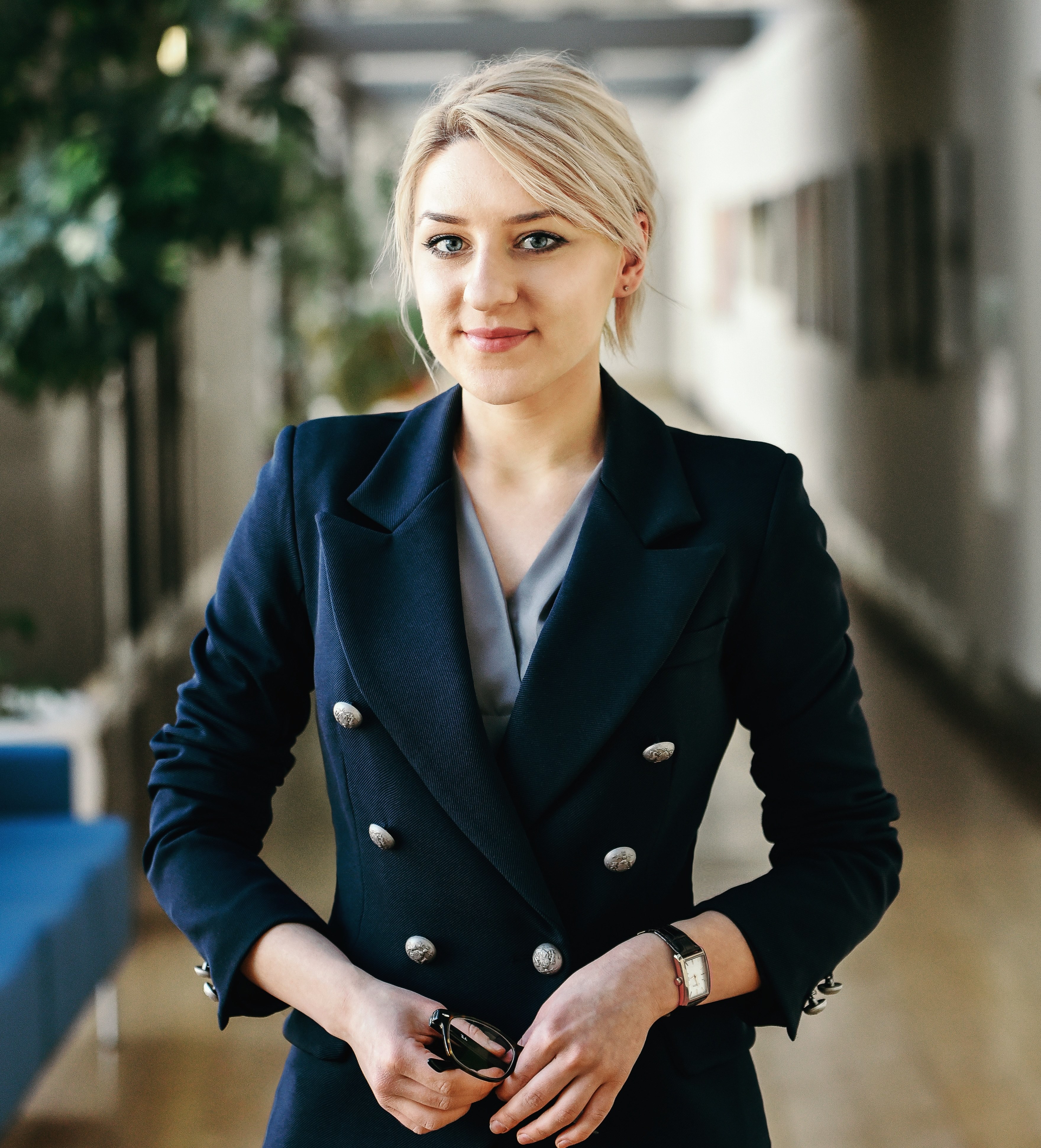
Interview with graduate of “Diplomacy and International Relations” MA programme, diplomat of the department of public affairs, external economic relations and economic security policy of the Lithuanian Ministry for foreign affairs, 2nd secretory Raimonda Vainalavičiūtė.
What inspired your decision to study at Vytautas Magnus university and why “Political Sciences”?
When I was still in school I was very interested in history, politology, current political events. I especially enjoyed Lithuanian language classes, since I could express myself by writing essays on problems that were relevant to Lithuania. I could even enter essay contests by providing solutions for these problems. At that time, Political studies seemed like the only existing university study program. I was more concerned with the university that I was going to choose, since all of them offered extremely different study programs. My choice was influenced by open door days that were held for students by Vytautas Magnus University. I was infatuated by the university, its surroundings, warm atmosphere, and virtues. During the six years that I studied at the university I never had a doubt about my decision.
What is your current profession and how did the subject of “Political Sciences” help you to get a job in this field?
Currently I’m trying to better Lithuania in the Diplomatic field. My occupation required not only political, diplomatic, economic, and law knowledge that I gained from my studies, but also analytic thinking and the ability to argument and discuss. For this knowledge I am thankful to Political science and diplomacy faculty lecturers Dr. Gerda Jakštaitė, Dr. Giedrius Cesnakas, Doc. dr. Andžej Pukšto, Doc. dr. Ingrida Unikaitė-Jakuntavičienė, and other competent lecturers who did more than just explain the theoretical part. They encouraged us to discuss, analyze, and seek out solutions for the provided problems. The introduction to diplomatic English language, taught by doc. dr. Vilma Bijeikienė, proved to be exceptionally beneficial. My chosen career was influenced not only the knowledge that I gained during lectures but also other academic activities: various academic clubs, event organizing, internships, student exchange programs. Who knows if it weren’t for Political science, Diplomacy and international relations study program, and the possibilities that Vytautas Magnus University provided me with, if I would be who I am today, and be able to represent Lithuania in an international context.
What VMU advantages (from a student’s perspective) would you distinguish?
I believe that the principle of freedom that they promote, and the traditions of artes liberales are not just slogans to Vytautas Magnus University. The freedom to choose your desired courses, possibility to partake in adjoining studies, professional, motivating, and understanding lecturers, possibility to choose subjects in English and attend them with people from all over the world- just a few university advantages. One of the strongest advantages are the academic after-class activities (such clubs as Academic Politologist club or American study club). People participate in them not only to have a good time, but also in order to express themselves, to accomplish civil ideas. Also, various discussions and events that the university organizes. This is just a smidget of advantages. In order to know all of them one must experience the university on their own.
Any advice to students who are currently studying or are planning to study a subject in the field of politics?
My main advice would be to not limit yourself with study programs. Do everything you can in order to gain as much as possible from the university: get an adjoining profession, learn various languages, try out academic clubs, participate in an exchange program, participate in various university events and discussions with guests. As the years go by you won’t remember how you wrote tests or sat in lectures. You will remember the fun moments, connections and the friends that you made. Make your experience make you want to always go back to your Alma Matter!
Public lecture by H.E. Ambassador of Romania, Mr. Dan Adrian Balanescu
Celebrating 100 years anniversary since the Great Unification of Romania, Department of Political Science of Vytautas Magnus University has pleasure to invite for public lecture Dan Adrian Balanescu, Ambassador of Romania to the Republic of Lithuania and the Republic of Latvia. The topic of the lecture „The Great Union – Romania’s Greatest Achievement”.
Public lecture will held in English on 5-th of November, 2018 at 1pm, in room 311, Putvinskio 23.

Public lecture “Russia as a risk: how it acts and what we can do about it ?”

VMU to Host Annual UNESCO Media and Information Literacy Conference
For the first time in Lithuania, the Baltic States, and the Northern Europe, the Feature Conference of Global Media and Information Literacy Week will be held at Vytautas Magnus University (VMU) on 24-25 October. The event, the 8th Media and Information Literacy and Intercultural Dialogue (MILID) Conference, will welcome about 300 participants from all over the world, including leading experts from the USA, France, Great Britain, and other countries.
Conference speakers will discuss the changing media environment, the influence of the media on social and political processes, and the competences and skills necessary for sustainable social, cultural, economic and political development of the world. The aim of the event is to promote international cooperation in the development of media and information literacy (MIL), support the role of academic institutions and their relations with other organizations, establish new partnerships, and stimulate discussions on these issues in the public sphere for the advancement of a smart, creative, and sustainable civil society.
“Over the last 40 years, which have been very dynamic in the context of the media, communications, and social change, UNESCO was one of the first international organizations to take on leadership in the development and promotion of international dialogue on MIL issues. From the Grunwald Declaration of 1982 to the Riga Recommendations of 2016, UNESCO has been inviting countries, organizations, creative industries, educational, scientific and cultural institutions to unite and cooperate in MIL networks and implement projects and initiatives”, one of the conference organizers, head of VMU Dept. of Public Communication, Prof. Kristina Juraitė, explained.
The conference is organized by UNESCO, Vytautas Magnus University, University of Latvia, and the national commissions for UNESCO in Latvia and Lithuania. Both VMU and University of Latvia are members of the UNESCO Media and Information Literacy and Intercultural Dialogue (MILID) Network. The guest speakers at the event will include Prof. Henry Jenkins from University of Southern California (USA), Prof. Sonia Livingstone from London School of Economics and Political Science (UK), Dr. Carl Heath (Sweden), Prof. Paul Mihailidis (USA) etc.
The theme of the conference, and of the entire Global MIL Week 2018, is Media and Information Literate Cities: Voices, Powers, and Change Makers. Discussions and paper presentations will focus on education of media and information literacy in the Baltic states, MIL as mediator between cultural industries and the city, the transformation of information needs in the cities, privacy and bullying online, the impact of digital environments in the age of misinformation, the role of MIL in the struggle for gender equality and women’s empowerment, the fight against hate and intolerance etc.
“The academic community has been given the rather important role at the forefront of the media and information literacy movement, which promotes the need for MIL in a sustainable, civil and democratic society. For this reason, this annual conference is primarily an opportunity for Lithuanian scientists to join international media literacy networks, get acquainted with the latest scientific studies and develop relevant research in the future”, Prof. Juraitė said.
Three years ago, the professor and other VMU scientists conducted a study on media literacy in Lithuania. The study, titled “Education of News Literacy: How to Understand Media?”, involved two public surveys where questions were answered by 15-17 year old pupils and adults (from 18 years old) respectively. The results demonstrated that the more educated individuals tend to assess online content more critically and verify the veracity of the news. The experts also prepared guidelines for the Lithuanian media policy: they proposed to review the methods of promoting and sponsoring journalism, with more focus on public interest, and to reassess the teaching of media literacy at schools.
This year VMU has strengthened its relations with the United Nations Educational, Scientific and Cultural Organization: the university has opened the UNESCO Dept. of Media and Information Literacy, which conducts MIL research: analyses media consumption, media policy, citizen participation and empowerment trends, and MIL education initiatives. The department also aims to develop MIL competences of students and educators and disseminate information on these issues in Lithuania and internationally.
“This acknowledgement is a result of long cooperation with UNESCO and other international organizations in the field of MIL research and studies. In their development of media research, VMU scientists have been actively involved in UNESCO-initiated MILID and GAPMIL networks and the activities of international scientific associations ECREA, ICA, BAMR, and AABS”, the head of VMU Dept. of Public Communication explained.
According to Prof. Juraitė, the UNESCO conference should be of particular interest to scholars of a wide variety of fields, including communication, journalism, education science, sociology, politics, public administration, arts, creative industries and other areas, as well as education and media policymakers, NGOs, businesses and start-ups.
The 8th annual UNESCO Media and Information Literacy and Intercultural Dialogue (MILID) Conference will be held on 24-25 October in Kaunas, at Vytautas Magnus University (S. Daukanto g. 28). On 26 October, the participants will attend further events in Riga organized by the University of Latvia.
VMU student G.Čepulytė awarded by Sakartvelo institutions for UN model simulation
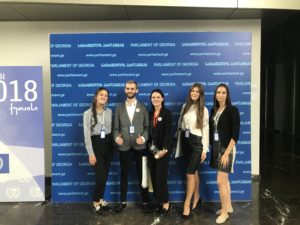
On the 12-16th of September, 2018, in Kutaisi city, Sakartvelo it was organized the international UN model simulation. Model UN simulations are usually meant to expand the views of the students, to help them better understand the daily work of the United Nations and attain practical skills in negotiations and decision-making. These events are mostly organized and run by students.
The faculty of Political science and diplomacy of Vytautas Magnus University was represented by Gertrūda Čepulytė, Artūras Matusevičius, Evelina Batakytė, Sandra Kudzmaitė, Vaineta Kazlauskaitė and Ieva Jakubavičiūtė.
This event, UN model simulation in Kutaisi, attracted students from 11 different countries, who took the tasks and participated in the simulation while representing different assigned countries- UN member states. The best participants of the Model UN were rewarded in different categories: Best public speaker, Best Delegation, Best position paper.
Gertrūda Čepulytė received an award ( first place) for the public speech in the category “best public speaker” while representing the position of the Republic of Yemen. Gertrūda was also awarded with gifts from the Kutaisi City Hall, Peace Corps, and LDA Georgia organisations.
Congratulations!
International discussion on global development issues
On the 19th of April international discussion „Focus on development: development cooperation policies and challenges“ will take place at the Faculty of Political science and diplomacy of Vytautas Magnus university. The discussion will focus on the issues covering global development problems and the development cooperation and policy agendas of different international organizations and national priorities.
The speakers – Arnoldas Pranckevičius, head of Lithuanian representation of the European Commission, Beth Richardson, representative of Canada Embassy for the Baltic states, prof. Alpo Rusi, Finnish diplomat, ambassador, professor and Violeta Motulaitė, Lithuanian diplomat, ambassador, head of development cooperation department of Lithuanian ministry for foreign affairs- will discuss the challenges and perspectives within global development cooperation.
The moderator of the discussion dr. Sima Rakutiene, vice-dean at the Faculty of political science and diplomacy- highlights that “EU is a leading donor in global development aid but in Lithuania this policy still does not attract much of attention”.
The event will take place at 11.00, in VMU Small Hall ( S.Daukanto g. 28), on Thursday,19th of April. For more information please contact sima.rakutiene@vdu.lt
MA graduate Italian Manuel speaks about diplomacy studies in VMU
Manuel Tornado is an Italian graduate of Diplomacy and International Relations MA studies programme at the Faculty of Political science and diplomacy. He speaks about his experience while studying at Vytautas Magnus University in Lithuania.
Apply Now: BA and MA Degree Studies at VMU
Vytautas Magnus University (VMU) welcomes international students to apply for 11 Bachelor and 21 Master degree study programmes in the English language. Application deadline for studies in the 2018/2019 academic year is 10 June. Application submissions have to be sent online.
This year VMU offers a wide range of study programmes in the English language, including interdisciplinary, joint, international programmes with foreign partners and others. The programmes are taught in Kaunas or Vilnius. Applications and admissions are managed by the International Cooperation Department.
Bachelor Study Programmes at the Faculty of Political science and diplomacy
Updated available BA study programmes include International Politics and Development studies, World Politics and Economy
At MA level, students can apply for East Asia Region Studies, , Diplomacy, Diplomacy and International Relations, Journalism and Media Industries, The Interdisciplinary Master’s in East European Research and Studies (MIREES).
State Grants for Full-Time MA Studies
The Ministry of Education and Science of the Republic of Lithuania has opened a call for applications for 70 Lithuanian state grants funding full-time Master degree or Integrated studies at Lithuanian higher education institutions in the academic year 2018/2019. The funding under the Call shall be provided to the nationals of the Ukraine, Belarus, Georgia, Armenia, Azerbaijan, Moldova, Japan, China, South Korea and Israel and foreigners of Lithuanian origin.
All approved candidates will receive a monthly scholarship of 380 euros for the whole duration of the studies. The cost of the full-time MA degree studies will be covered (up to the limit not exceeding the national standard cost of studies) only for the nationals of the Ukraine, Belarus and Georgia and foreign citizens of Lithuanian origin.




